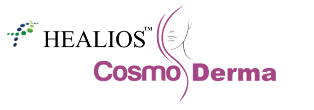What is acitretin?
Acitretin is an oral retinoid (vitamin-A derivative) used to treat severe psoriasis, usually at a dose of 0.25 – 1 mg per kg body weight per day. It is best taken after a meal because it needs fat to be absorbed through the gut wall.
What is acitretin used for?
Acitretin is particularly effective for pustular psoriasis, erythrodermic psoriasis and psoriasis affecting hands and feet. It is not effective for psoriatic arthritis.
It is occasionally used to treat other skin conditions including:
- Palmoplantar pustulosis
- Hand dermatitis (when very thick and scaly)
- Darier disease
- Lichen planus
- Lichen sclerosus
- Lupus erythematosus
- Cutaneous T-cell lymphoma
- Extensive granuloma annulare
- Severe ichthyosis
- Extensive actinic keratoses and skin cancers
- Extensive warts
Risk of acitretin in pregnancy and during breastfeeding
Acitretin MUST NOT be taken in pregnancy; it can damage an unborn child and cause birth defects. Strict birth control measures must be used during treatment and for two years after stopping acitretin. Therefore, acitretin is rarely prescribed to females of child-bearing potential. If it is, they will be asked to have a blood pregnancy test before treatment and regularly during treatment. People on acitretin should not donate blood during treatment or for two years afterwards. Acitretin should not be taken while breast-feeding.
It has no effect on male sexual function or offspring, so can be taken by males of all ages.
What is the mechanism of action of acitretin?
Acitretin is a metabolite of an earlier antipsoriatic retinoid, etretinate. Acitretin is thought to work in psoriasis by slowing down the proliferation of the skin cells. A response is noted in more than half of treated patients. Improvement begins about two weeks after starting treatment, and is maximum after about twelve weeks. The affected skin either peels off or gradually clears.
Some patients are treated with acitretin for a few months, repeated from time to time, whilst others remain on the acitretin long term.
In resistant cases, acitretin can be combined with other antipsoriatic drugs and/or phototherapy.
What are the side effects and risks of acitretin?
Acitretin has side effects that may limit the dose that can be used.
- Dryness of lips: apply lip salve frequently especially when outdoors.
- Dry nostrils that may crust and/or bleed: petroleum jelly can help.
- Dry eyes: use artificial tear eye drops.
- Dry reddened skin: apply moisturisers frequently.
- Peeling skin, especially hands and feet; apply moisturisers frequently.
- Fragile soft skin: protect it from injury.
- With long-term use, thin, ridged, and brittle nails.
- Generalised hair shedding and thinning may occur; this is usually temporary although permanent thinning has been reported.
- Change in colour and/or texture of hair may occur.
- Increased susceptibility to sunburn: protect your skin from the sun. Use broad spectrum sunscreen and dress up well. If you are receiving phototherapy, advise your therapist that you are taking acitretin. A reduction in dose may be necessary.
- Skin infections, especially with Staphylococcus aureus (impetigo, boils or nail fold paronychia).
- Aggravation of skin complaint: this is often temporary and followed by improvement but if a severe flare occurs you should tell your dermatologist and stop taking the acitretin.
- Headaches: if these are severe or accompanied by visual problems, inform your dermatologist and stop the acitretin; the symptoms could be caused by an increase in pressure on the brain.
- Muscle, joint or bone aches, especially with exercise; reduce exercise if needed.
- Hyperlipidaemia (raised blood fats i.e. cholesterol and triglyceride), detected by blood tests, which are best taken when fasting (on an empty stomach). The level of the blood fats is compared with a pre-treatment test. High blood fats are more likely in diabetics and in those who drink a lot of alcohol. If the blood fats are too high, a special low fat and low sugar diet may be recommended, a lipid-lowering medication may be prescribed or the dose of acitretin may be reduced or stopped.
- Rarely, acitretin may result in disturbed liver function (hepatitis). It should be discontinued if this occurs, and it would be unwise to take it again.
- Mood changes; high dose retinoids can cause mood change including irritability, aggression and depression.
Interactions with other medications
Acitretin should not normally be taken at the same time as the following medications (there may be rare exceptions):
- Vitamin A or any other retinoid (e.g. isotretinoin).
- Tetracycline or one of its derivatives.
- Methotrexate.
- Phenytoin.
It is best to avoid alcohol when on acitretin, especially if triglyceride levels are high.

 7975288129 / 7483528607
7975288129 / 7483528607
